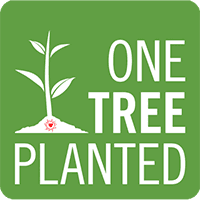
25 trees will be planted on your behalf for every experience purchased, via our partnership with One Tree Planted.
See more at onetreeplanted.org
Farming in Japan is different from farming in North America or the US. The mountainous Japanese landscape doesn’t allow for big, stretched out fields. Instead many people run their own little farms, tugged into the hills.
The village of Otaki is no different. Many of its inhabitants are growing vegetables and crops, some have animals. They sell their harvest on local markets or in regional supermarkets. But while the younger generation leaves the countryside, the work is getting harder for the ones who stay.
Most people in and around Otaki follow a rather traditional Japanese lifestyle. Their houses merge western elements with traditional Japanese architecture. But with the young generation leaving the countryside, many of the elders are increasingly afraid of their customs dying with them. More than you helping them in their daily work, they appreciate the chance to teach you about their work and their culture.
For Japanese farmers the day typically starts with sunrise. You may be asked to get up early to do some first chores before breakfast. Throughout the rest of the day more work awaits. Depending on the season and weather, expect about 2-5 hours of work per day. During spring, summer and autumn, the work will be mostly outdoors. Tasks e.g. could be:
Volunteer experiences have a direct and positive impact on local communities by injecting money into the local economy through the purchase of food, transportation, and tourism activities. Volunteering is a great way to give back to the comunity and make a difference in the world. Depending on the type of volunteer experience you are interested in, your time can be spent improving educational resources and opportunities, providing medical services to underserved communities, or promoting environmental conservation and sustainable farming techniques.

25 trees will be planted on your behalf for every experience purchased, via our partnership with One Tree Planted.
See more at onetreeplanted.org

1% of gross sales will be donated to 1% for the Planet-approved charities via our partnership with 1% for the Planet.
See more at onepercentfortheplanet.org
No airport pickup included. You must either:
Meet one of our transfer coordinators at the Shinjuku Bus terminal meeting point below, for info on the airport limo-bus service from NRT Bus from Narita to Shinjuku or HND Bus from Haneda to Shinjuku These buses take you directly inside the Shinjuku Bus Terminal.
There are also a couple local train options that can get you to Shinjuku station and from there you can walk to the Bus Terminal. Those are a bit more involved and might not be the best bet for a first time traveler. Whichever route you decide, you must then go upstairs to 4F information desk to meet the local team Transfer Coordinator at 17:00.
or Make your own way to us in Otaki on Sunday
You may be asked to help out on the farm in the early morning
Leave the accommodation early morning on Saturday. Take the local bus from Kiso Fukushima to Shinjuku Bus Terminal in Tokyo. Choose options of local train service to connect to airports, or take a taxi, or take the Express bus to HND (Haneda) or NRT (Narita). Travel time is about 7.5 hours with earliest flights possible Saturday Evening
Weekdays you will enjoy three meals a day (breakfast, lunch and dinner) and two on weekends, during your stay. Meals will be local cuisine and you can expect that they will include rice and vegetables.
While in Otaki, Nagano, Japan you will be staying in a local Homestay or at our participant accommodation (possibility for some amazing camping in a tent during warmer months)10-25 minutes outside of the village by car. Please keep in mind the toilet and shower for the Green House location near the restaurant and campsite are separate from the sleeping accommodation. The homestay at the house provides toilet and shower inside. There may also be a pet dog around the Green House location.